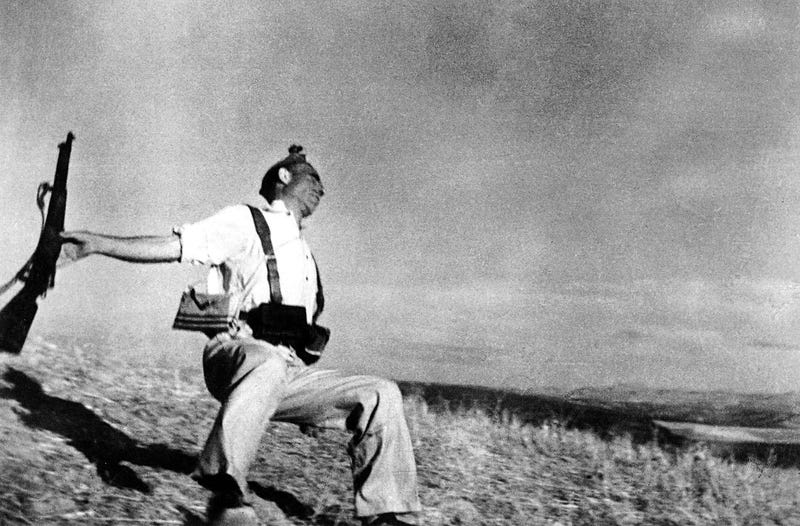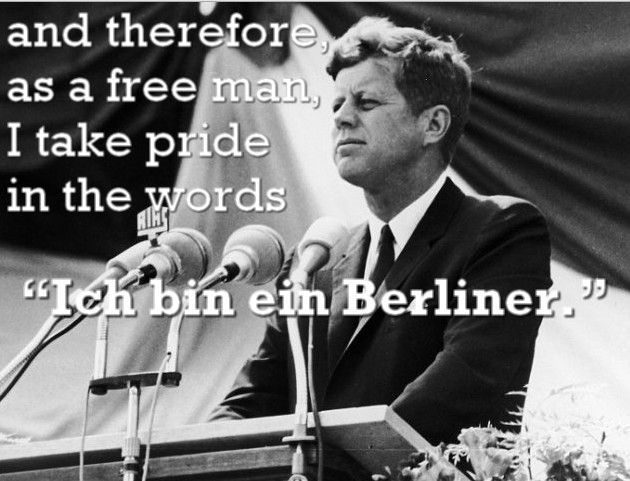ENTREVISTA:
“VIVÍ LA GUERRA”:


Hoy,
a día 5 de junio del 2016, me dispongo a entrevistar a mi abuela
materna, Ángeles Aguado Jiménez, que vivió el comienzo de la
guerra en 1936 a los 11 años de edad, en el pueblo Íllora, de la
provincia de Granada.
ENTREVISTADOR:
E
ENTREVISTASDA:
E
E
¿Qué edad tenía cuando comenzó la guerra?
E
11 años recién cumplidos.
E
¿Qué bando se asentó en Íllora?
E
Los sublevados se asentaron, y todo el pueblo tuvo que aceptarlo.

E
¿Y cómo se sintió el comienzo de la guerra en el pueblo?
E
Aquí no hubo un comienzo tan directo. No se decía que llegaban los
“rojos”, o que había empezado nada. Pero se fusilaba a las
personas con ideas contrarias. Se las llevaban a la cárcel, y un
camión las recogía, se las llevaba y las fusilaba. Fueron
muchísimas personas.
E
¿Es decir el régimen nacionalista tomaba a las personas de
ideología republicana y se las llevaba?
E
Sí. Los de “derechas” se llevaban a todos los hombres
socialistas y de “izquierdas” sin tener delito ninguno. Hombres
de familia, personas trabajadoras. Y a la mañana siguiente los
fusilaban.
E
¿Fusilaron a alguien que conocieras más cercanamente o que
recuerdes con claridad?
E
Sí, al padre de una amiga mía. Una mañana me dijo que si quería
ir con ella, que habían detenido a su padre e iba a llevarle el
café a la cárcel. Y al llegar nos dijeron que su padre había
subido a declarar al cuartel, que ya no estaba allí. Y una vez
llegamos nos dijeron que ya se había ido y había regresado.
Realmente, había sido fusilado, y tirado a un foso con otros para
ser enterrados.

E
¿ Y los niños y niñas cómo vivíais el efecto de la guerra?
E
Éramos tan jóvenes que no entendíamos por que ocurrían todas
esas cosas. Teníamos 11, 12, 13 y 14 años. Solo sabíamos que nos
prohibían en muchas ocasiones estar en casas de otros y otras,
debido a las distintas familias y sus ideologías. Pero nosotros no
lo comprendíamos al principio.
E
¿ Y hubo bombardeos en Íllora?
E
Sí. Dos veces bombardearon. La primera soltaron las bombas cerca
del pueblo, cerca de la plaza. Pero la segunda las tiraron por las afueras, cerca de los Molinos.
E
¿Y eso a que se debía?
E
A que el piloto republicano era de Íllora. El piloto enviado a
bombardear tenía a su madre y hermana en la Calle Real. Y para no
hacer daño, o las tiraba antes de llegar al pueblo, o las tiraba
después.
E
¿Y el piloto si tenía aquí su familia por qué estaba en el otro
bando y la otra zona?
E
Porque era militar, y tuvo la oportunidad de unirse a los “Rojos”.
Una vez se asentaba un bando, o lo defendías o eras fusilado. Así
que nuestra familia y tantas otras más no tuvieron más remedio que
luchar con los Nacionalistas. Solo unos pocos escapaban y se unían
al frente republicano.
E
¿Y sentíais terror en los bombardeos?
E
Terror es poco. Era un auténtico horror. Teníamos que escondernos
todos en el sótano de un vecino, que nos daba cobijo, y allí
esperar a que acabara todo.
E
¿Había alarmas que avisaban de cuando se bombardeaba?
E
No había, solo llegaban y uno debía estar preparado.
E
Volviendo a la situación de los niños. Las diferencias entre
familias que antes has mencionado, ¿cómo os afectaban a vosotros?
E
Pues en el colegio, un grupo de niñas, cuyos padres habían luchado
por el bando republicano, incluyendo al alcalde de Íllora, que
había sido socialista, nos pegaban a las niñas que teníamos
padres que luchaban por el bando nacionalista. Al salir del colegio,
nos separaban y nos apedreaban, haciendo honor según ellas a la
República. Al ser la mayoría de las familias partidarias de los
sublevados, o verse obligadas a luchar con ellos, las pocas familias
de izquierdas que eran localizadas tenían un gran recelo a las
otras. Y los pagaban tanto adultos como niños.
E
¿Y tu familia que postura tuvo ante la guerra?
E
Mi padre decidió no involucrarse, porque era un hombre mayor, y
nosotros éramos 6 hermanos y hermanas, y mi madre, y no quería
dejarnos solas. Intentamos irnos del pueblo en 2 ocasiones, pero no
pudimos. Una vez tuvimos que refugiarnos en una casa de Pinos,
porque los “Rojos” llegaron a parte del pueblo, y comenzaron a
quemar casas y sacar familias. Allí permanecimos unas semanas. 3 de
mis hermanos fueron todos a la guerra con 15, 16 y 17 años. Por
suerte todos sobrevivieron.
E
¿ Esto te afectó?
E
Muchísimo, ya que tuvimos que dejarlo todo, y todas nuestras
pertenencias al irnos. Al volver apenas quedaba nada en la casa. Y
durante el período de marcha de mis hermanos, mi hermana María, mi
hermano y yo estábamos solos y preocupados, al igual que mis
padres. Cada vez que venía el cartero nos temíamos lo peor.
E
¿ Y los últimos años de la guerra?
E
Fueron los peores, ya que apenas teníamos alimentos, y todo
escaseaba. El pueblo había quedado dividido, y los niños jugaban a
ser “Flechas Azules” o “Rojos”, y se peleaban entre ellos.
Finalmente, todas las familias socialistas del pueblo se fueron
ante amenaza de muerte, y no volvieron hasta después de la
Dictadura.
E
¿Y qué ocurrió tras su llegada?
E
Odio. Odio entre familias que se mantuvo durante años. Tanto en la
Posguerra como en el final de la Dictadura. Un odio enorme que aún
se mantiene entre algunas familias, y que hizo que conviviéramos
con recelo.
E
¿ Y después de la guerra?
E
Por suerte , mi familia no fue la que más sufrió, y las cosas se
normalizaron en unos años. Pero mis padres aún lloraban algunas
veces cuando estaban solos, y sufrían en silencio. Ellos lo pasaron
peor que nadie. Porque la guerra destruyó sus vidas, y los apartó
de sus amigos, hijos y empleos. Ellos si sufrieron más que yo o mi
hermana. Mis hermanos por su parte sufrieron los horrores de la
guerra, los cuales les marcaron hasta su fallecimiento. Nunca
olvidaron todo lo que tuvieron que hacer y vivir.
POR
JUAN JOSÉ DELMÁS MACÍAS, 4ºESO A.












